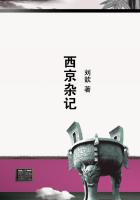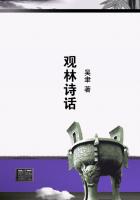Machinery produces the same effects, but upon a much larger scale.It supplants skilled laborers by unskilled, men by women, adults by children;where newly introduced, it throws workers upon the streets in great masses;and as it becomes more highly developed and more productive it discards them in additional though smaller numbers.
We have hastily sketched in broad outlines the industrial was of capitalists among themselves.This war has the peculiarity that the battles in it are won less by recruiting than by discharging the army of workers.The generals (the capitalists) vie with one another as to who an discharge the greatest number of industrial soldiers.
The economists tell us, to be sure, that those laborers who have been rendered superfluous by machinery find new venues of employment.They dare not assert directly that the same laborers that have been discharged find situations in new branches of labor.Facts cry out too loudly against this lie.Strictly speaking, they only maintain that new means of employment will be found for other sections of the working class; for example, for that portion of the young generation of laborers who were about to enter upon that branch of industry which had just been abolished.Of course, this is a great satisfaction to the disabled laborers.There will be no lack of fresh exploitable blood and muscle for the Messrs.Capitalists -- the dead may bury their dead.This consolation seems to be intended more for the comfort of the capitalists themselves than their laborers.
If the whole class of the wage-laborer were to be annihilated by machinery, how terrible that would be for capital, which, without wage-labor, ceases to be capital!
But even if we assume that all who are directly forced out of employment by machinery, as well as all of the rising generation who were waiting for a chance of employment in the same branch of industry, do actually find some new employment -- are we to believe that this new employment will pay as high wages as did the one they have lost? If it did, it would be in contradiction to the laws of political economy.We have seen how modern industry always tends to the substitution of the ******r and more subordinate employments for the higher and more complex ones.How, then, could a mass of workers thrown out of one branch of industry by machinery find refuge in another branch, unless they were to be paid more poorly?
An exception to the law has been adduced, namely, the workers who are employed in the manufacture of machinery itself.As soon as there is in industry a greater demand for and a greater consumption of machinery, it is said that the number of machines must necessarily increase; consequently, also, the manufacture of machines; consequently, also, the employment of workers in machine manufacture; -- and the workers employed in this branch of industry are skilled, even educated, workers.
Since the year 1840 this assertion, which even before that date was only half-true, has lost all semblance of truth; for the most diverse machines are now applied to the manufacture of the machines themselves on quite as extensive a scale as in the manufacture of cotton yarn, and the laborers employed in machine factories can but play the role of very stupid machines alongside of the highly ingenious machines.
But in place of the man who has been dismissed by the machine, the factory may employ, perhaps, three children and one woman! And must not the wages of the man have previously sufficed for the three children and one woman?
Must not the minimum wages have sufficed for the preservation and propagation of the race? What, then, do these beloved bourgeois phrases prove? Nothing more than that now four times as many workers' lives are used up as there were previously, in order to obtain the livelihood of one working family.
To sum up: the more productive capital grows, the more it extends the division of labor and the application of machinery; the more the division of labor and the application of machinery extend, the more does competition extend among the workers, the more do their wages shrink together.
In addition, the working class is also recruited from the higher strata of society; a mass of small business men and of people living upon the interest of their capitals is precipitated into he ranks of the working class, and they will have nothing else to do than to stretch out their arms alongside of the arms of the workers.Thus the forest of outstretched arms, begging for work, grows ever thicker, while the arms themselves grow every leaner.
Finally, in the same measure in which the capitalists are compelled, by the movement described above, to exploit the already existing gigantic means of production on an ever-increasing scale, and for this purpose to set in motion all the mainsprings of credit, in the same measure do they increase the industrial earthquakes, in the midst of which the commercial world can preserve itself only by sacrificing a portion of its wealth, its products, and even its forces of production, to the gods of the lower world -- in short, the crises increase.They become more frequent and more violent, if for no other reason, than for this alone, that in the same measure in which the mass of products grows, and there the needs for extensive markets, in the same measure does the world market shrink ever more, and ever fewer markets remain to be exploited, since every previous crisis has subjected to the commerce of the world a hitherto unconquered or but superficially exploited market.
But capital not only lives upon labor.Like a master, at once distinguished and barbarous, it drags with it into its grave the corpses of its slaves, whole hecatombs of workers, who perish in the crises.
We thus see that if capital grows rapidly, competition among the workers grows with even greater rapidity -- i.e., the means of employment and subsistence for the working class decrease in proportion even more rapidly; but, this notwithstanding, the rapid growth of capital is the most favorable condition for wage-labor.















